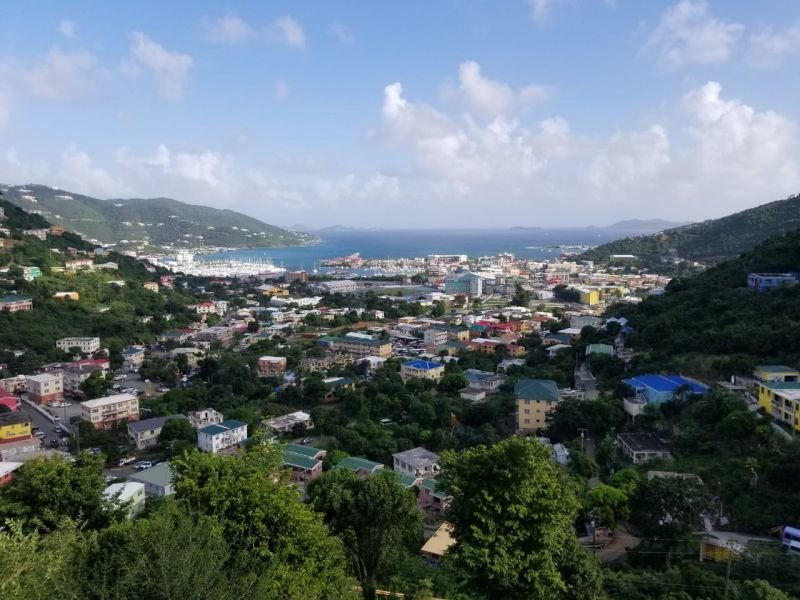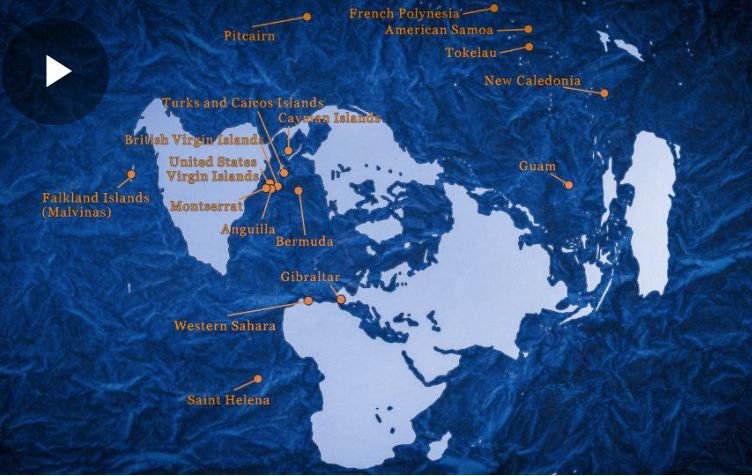
Prepare for independence or risk being caught off guard
Fourth District Representative, Honourable Mark H. Vanterpool was one of many legislators addressing the Fourth Sitting of the Third Session of the Fourth House of Assembly (HoA) on Friday, December 4, 2020, on the occasion of the 70th anniversary of the establishment of the Legislative Council, now named the House of Assembly.

According to Hon Mark H. Vanterpool , the day the United Kingdom says goodbye to its Overseas Territories or the United Nations demands that the UK follows Article 73 of the UN Charter, the Virgin Islands would be caught in an unprepared position.
‘Sometimes we are fearful’
According to the former Minister of Communications and Works, the Virgin Islanders should not be afraid about expressing sentiments of being an independent nation.
“Sometimes we are fearful, we are afraid to stand up and speak up as to where we think we should be and what we should be doing,” Vanterpool told his colleagues.
“We are here celebrating today, but there would not be a celebration if somebody, even one, were not willing to stand up and to gather help and to get people to understand what it meant to be governed by persons other than yourselves, with no interest in yourselves, when you are capable of doing it for yourself. Until somebody comes to us and say ‘listen you, gentlemen, we think it is time that you cut your navel string from your mother and go on your own.’ When that time happens, we will all going to be scrambling and say what we are going to do and how we are going to do it,” he added.

At present, 17 Non-Self-Governing Territories (NSGTs) across the globe remain on the list of Non-Self-Governing Territories, home to nearly 2 million people.
Prepare for independence
The Opposition legislator said the territory needs to begin making preparations for it to become an independent nation.
He explained: “In the meantime, we need to prepare and move on to see what we can move to the next stage. We are learning from 70 years that these good gentlemen fought for us to be able to have our own legislature and sit in here… It’s a lesson, Mr Speaker, for us to learn, for our young persons to learn so that they can aspire to something that they can do that once before they couldn’t aspire to that.”
Speaking about the Great March of 1949, which ignited the spirit of self-determination in the hearts of Virgin Islanders and let to the Legislative Council of the Virgin Islands being reinstated in 1950, after being abolished for 49 years, Hon Vanterpool asked when would the Virgin Islands aspire to reach the level of self-determination.
“What year are we going to aspire to, that we are going to take the next step? Who is going to be the brave soul?”
Acknowledging that the issue of self-determination and independence are nothing new, Hon Vanterpool lamented that progress is hardly made since there is never a purposeful motive to go the distance.
“Every time it is raised, oh, let’s see what it’s going to cost to be independent, let’s do a cost analysis, let’s set up a committee to do the cost, let us set up a committee to do this, a committee to do that.”
According to Hon Vanterpool, the day that the United Kingdom says goodbye to its OTs or the United Nations demands that the UK follows Article 73 of the UN Charter, the territory would be caught in an unprepared position.
“And that day might come sooner than we think,” Hon Vanterpool warned.
What does Article 73 of UN charter say?
Article 73 of the UN charter states that “Members of the United Nations which have or assume responsibilities for the administration of territories whose peoples have not yet attained a full measure of self-government recognize the principle that the interests of the inhabitants of these territories are paramount, and accept as a sacred trust the obligation to promote to the utmost, within the system of international peace and security established by the present Charter, the well-being of the inhabitants of these territories, and, to this end:
a. to ensure, with due respect for the culture of the peoples concerned, their political, economic, social, and educational advancement, their just treatment, and their protection against abuses;
b. to develop self-government, to take due account of the political aspirations of the peoples, and to assist them in the progressive development of their free political institutions, according to the particular circumstances of each territory and its peoples and their varying stages of advancement;…”
Decolonisation
Since the birth of the United Nations in 1945, more than 80 former colonies comprising some 750 million people have gained independence. At present, 17 Non-Self-Governing Territories (NSGTs) across the globe remain on the list of Non-Self-Governing Territories, home to nearly 2 million people.
As the process of decolonisation continued to advance, the General Assembly, in 1960, adopted its landmark Declaration on the Granting of Independence to Colonial Countries and Peoples. The Declaration affirmed the right of all people to self-determination and proclaimed that colonialism should be brought to a speedy and unconditional end. Two years later, a Special Committee on Decolonisation was established to monitor its implementation.










